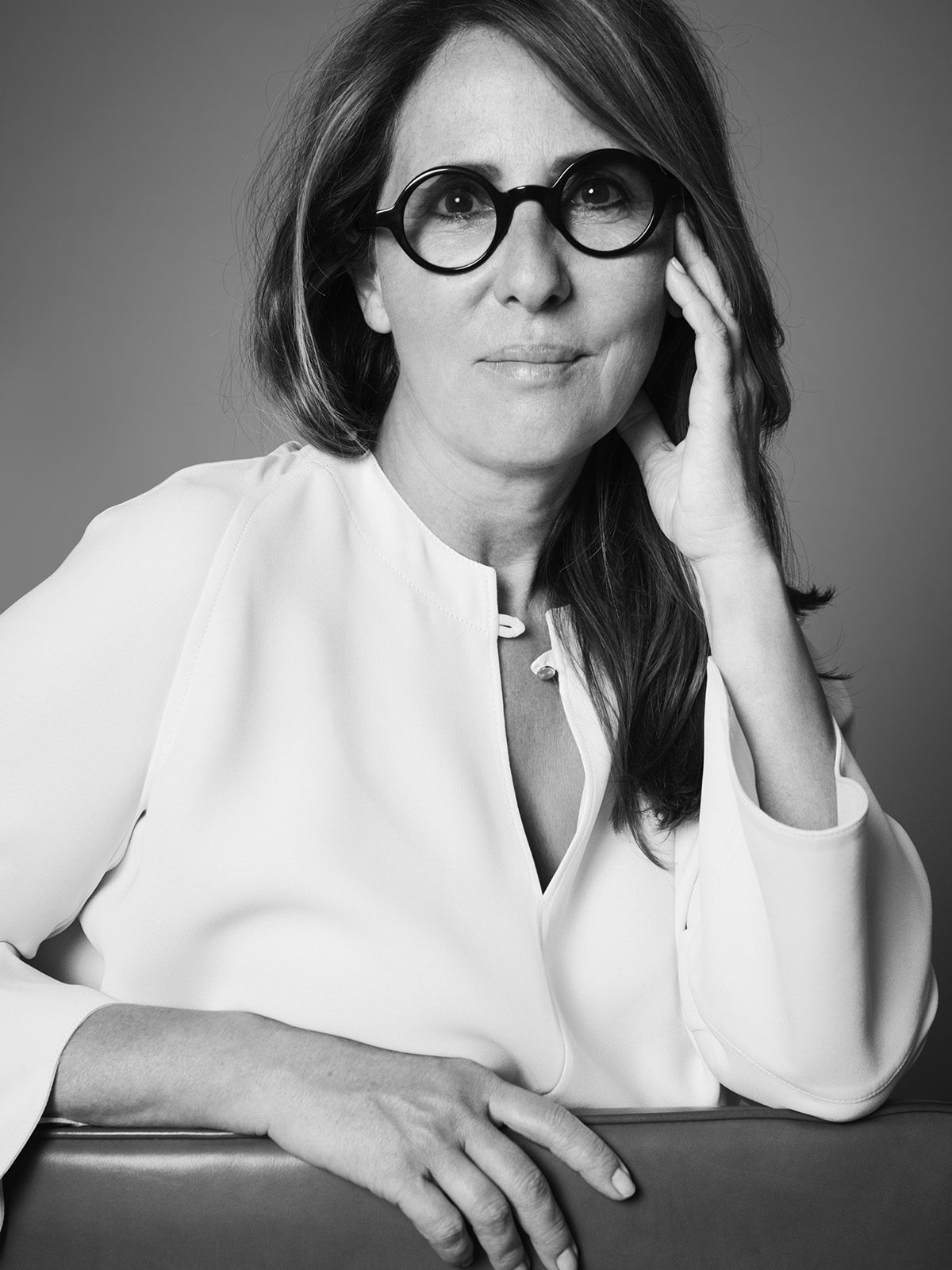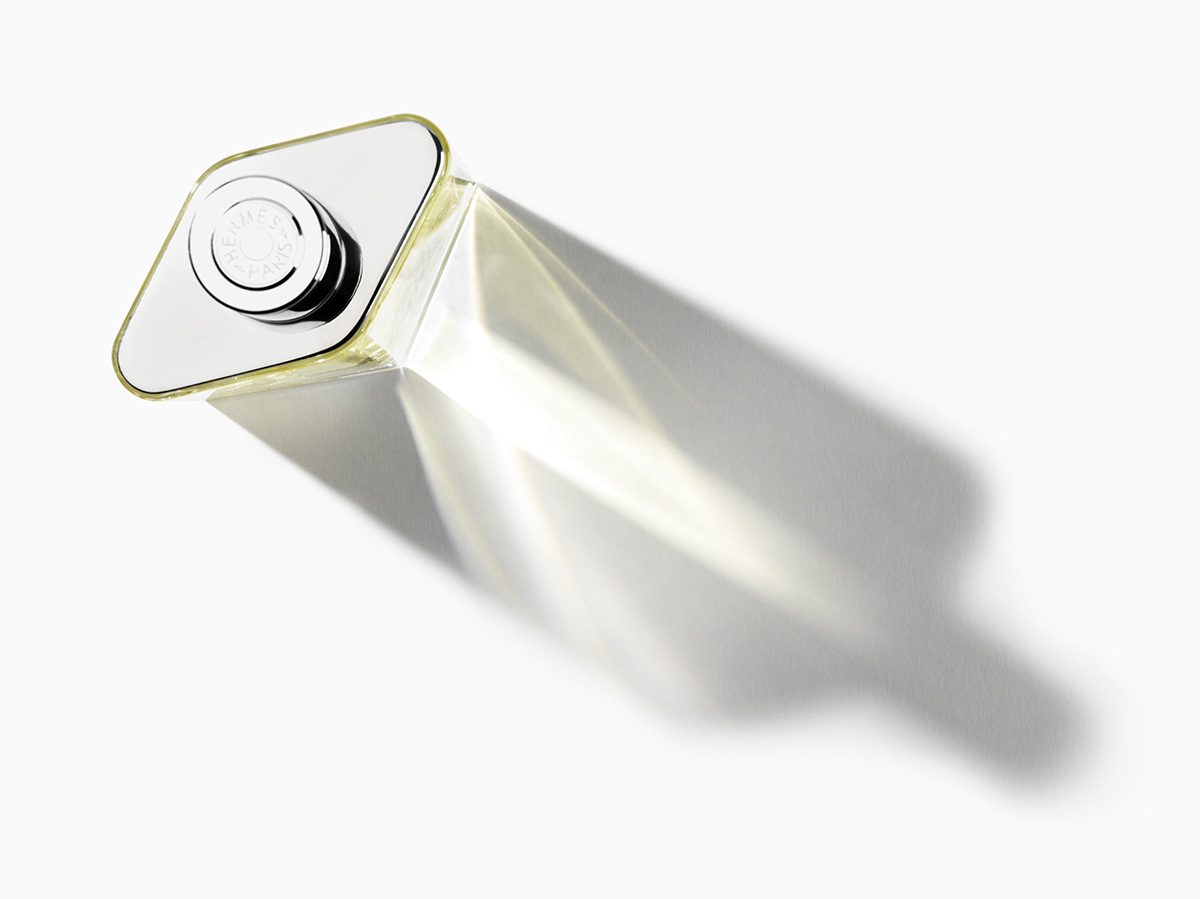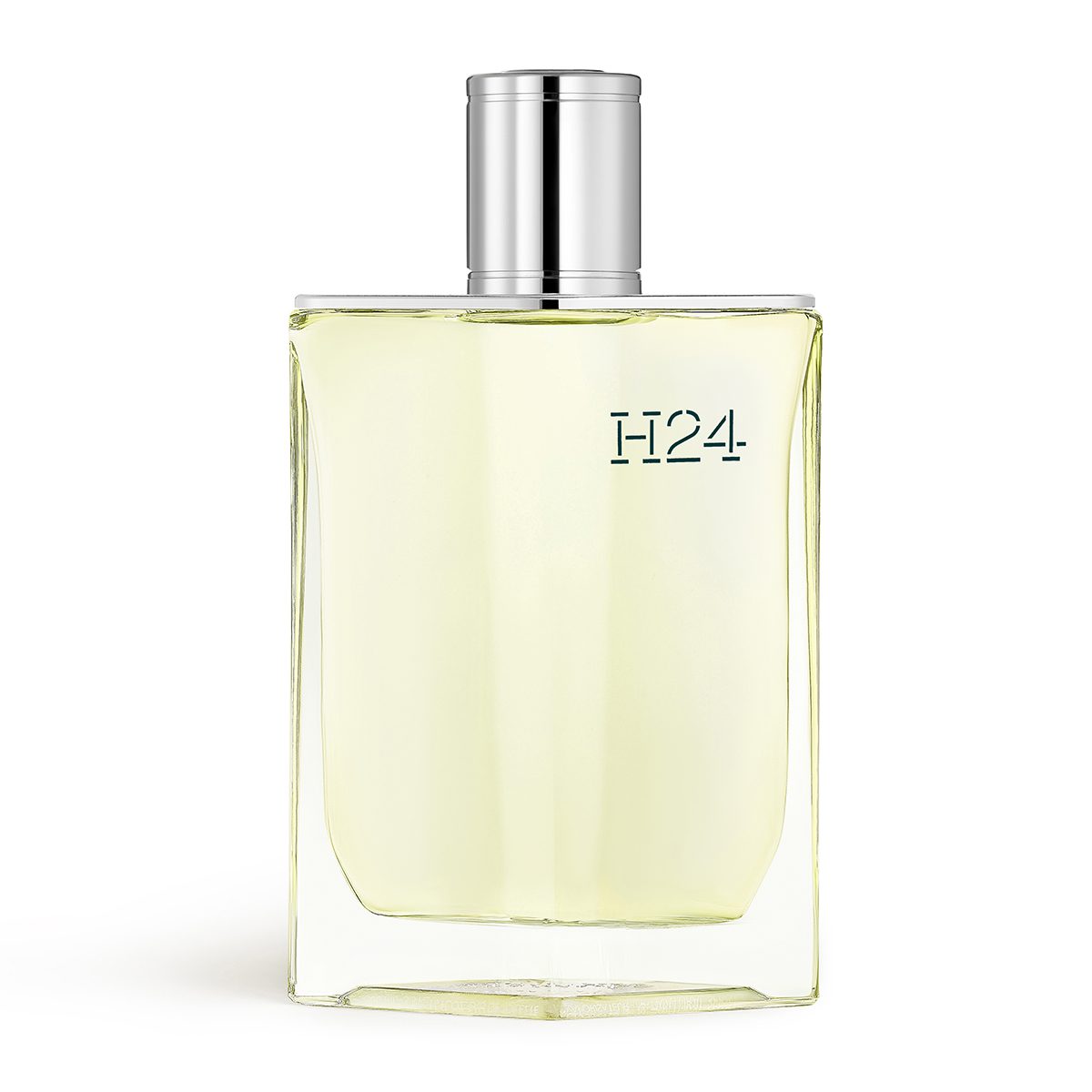
Hermès perfumer Christine Nagel. Photograph by Sofia Etmauro
Christine Nagel is one of the most admired perfumers in the world, and has worked as the “nose” of Hermès since 2016. Most recently, she created H24, the brand’s first scent for men in fifteen years. Here, she discusses her approach to creating fragrances and how the industry has changed over the course of her career
LUX: What was the catalyst for your decision to become a perfumer?
Christine Nagel: I am a Swiss national with an Italian mother, I grew up a long way from Grasse and the world of perfumery. My encounter with perfume came through my studies in organic chemistry and my first professional experience. Alberto Morillas, whom I saw from my office window, was instrumental in my decision. He asked two young women to smell his trial fragrances. I saw their smiles, I felt their emotions, I perceived their pleasures. At that precise moment, I knew. I was sure that this job, that allows you to give so much, was for me. So, it was through the infinitely small that I discovered the richness of perfumery. Then, I couldn’t rest until I had become a perfumer, constantly learning, experimenting and perfecting my knowledge. And some wonderful encounters have marked my life. I wasn’t afraid to take risks and luckily, they turned out well for me.
Follow LUX on Instagram: luxthemagazine
LUX: What is your favourite scent?
Christine Nagel: The one I’m working on, that is to say the next one. Seriously, though, my favourites fluctuate, and I have no preconceptions about any material or any scent. All raw materials interest me. I like to transform things, I like to make green notes warm, woods liquid, and flowers hostile. But if I really had to choose one, it would be patchouli.
LUX: Do you have a set strategy when creating a new perfume?
Christine Nagel: Once again, there is no marketing intervention before creation. It supports creation, it doesn’t dictate it. What is remarkable about Hermès is the constant faith placed in creation and the creator. If I was chosen by the house, it was for this signature. This recognition is a source of delight every day because I am living my dream of creating fragrances that uphold and embody all the values of this house. My only aim is therefore to create exceptional fragrances.

Hermès’ new fragrance H24. Photograph by Quentin Bertoux
LUX: Should people have different perfumes for separate occasions?
Christine Nagel: A fragrance touches or speaks to us through how it resonates with our emotions, memories and desires. It can make us feel seductive or protected in turn. Everyone can find what they need for a particular time of day or year, or in a personal or professional context.
LUX: Are there advantages to having one gender create scents for the other?
Christine Nagel: No, from my point of view it is not a question of gender but a question of style, a question of signature and sensitivity. I don’t believe that people choose a fragrance on the basis of the perfumer’s sex anymore. That era is over. Women are behind some great creations, whether for famous names or niche brands.
Read more: Celebrating women in wine with VIVANT
LUX: Why has it been so long since Hermès created a male perfume?
Christine Nagel: There have been interpretations of Terre d’Hermès, but it is true that there have been no new creations from scratch. The success stories that have become classics have shaped the history of Hermès for men: Equipage in 1970, Bel ami in 1986, and Terre d’Hermès 15 years ago. They were all bold, and decisively different at the times they were created. They all represented the house’s values, with perfumery that made a statement, a free and committed type of perfumery that was deeply anchored in heritage to better innovate in the present. It was time. H24 is a fragrance for a new audience, in keeping with a desire for innovation and with the tradition of great French perfumery promoted by the house.

Christine Nagel in her atelier in 2017. Photograph by Quentin Bertoux
LUX: During the past 30 years has there been a noticeable change in desire for perfume generally, or the type of scent demanded?
Christine Nagel: Since my early days in this wonderful profession, perfumery has changed, and I’m very glad it has. It has changed and adapted to every era. The changes are as much sociological and economic as they are artistic and technical. Economic because mass-market perfumery has emerged, sociological because it has adapted to everyone’s tastes, artistic because the perfumers who create the fragrances are named and showcased. And finally, technological because new methods for extracting materials, new molecules and tools for understanding and analysing materials have also shaken up the way fragrance is designed. As for predicting the future, I don’t want to do that because talking about trends is already talking about the past. But if I had a dream it would be to ban consumer tests and panels that have standardised and confined the world of fragrance.
Read more: Olivier Krug on champagne and music
LUX: Do you prefer combining scents or creating completely new ones? Creating a fragrance that belongs to an existing family or starting from scratch as for H24?
Christine Nagel: It’s not the same exercise and both are exciting. It is perhaps a little more difficult to create a fragrance within an existing family because it involves respecting its spirit, structure and imaginary world while adding your own signature.
Working on an icon, like I did with Terre d’Hermès and Eau des Merveilles, is daunting but also extremely stimulating. I move onto creation after a phase of observation where I examine the formula in depth. I want to understand its workings, decode its mysteries, and then, I immerse myself in creation without fear, which allows me to go quite far. And to be clear, each one is a genuine creation.

H24 100ml bottle by Hermès
LUX: What do you think a choice of perfume says about a person?
Christine Nagel: Fragrance says a lot, as does how it is worn. As I said before, perfume can be protective, acting like armour, a protective bubble to avoid others or, on the contrary, it can be a projector, seeking to seduce, to be seen, to show oneself. But it is nothing without the person who wears it. It only exists and speaks to the senses in the way it is used, whether that is abundant or discreet. However it is used, it makes it possible to be.
LUX: What is the most surprising thing you have noticed during your journey as a perfumer?
Christine Nagel: The incredible emotion that a fragrance can trigger. Scent is an endless source of emotions and stories, because each individual scent opens up a new narrative in an imaginary world.
LUX: Do you think in this day and age it’s appropriate to differentiate perfumes by gender?
Christine Nagel: No, I don’t. For me, fragrances are works of art, and as such are not created specifically for women or for men, but for humanity. The fragrance exists in itself, not in relation to its destination. In Eastern and Indian cultures, rose or patchouli can be worn by men. So it’s not the scent that makes the gender, because a scent becomes masculine on a man’s skin and feminine on a woman’s skin. We just have to know how to dare, be bold, trust ourselves and try things out.
LUX: Do you think the best perfumers are born with a creative olfactory sense or is it something you can learn?
Christine Nagel: That’s not an easy question to answer, but it seems to me that you need a certain sensitivity, a curiosity about the world and an open-mindedness that allows you to capture its richness, not forgetting a certain amount of generosity and the desire to share. You also have to be a hard worker because this job also requires great discipline and a lot of work. Finally, and this is as difficult to explain as it is essential, you need an extra measure of soul, a special something.
Discover Hermès’ collections: hermes.com







Recent Comments